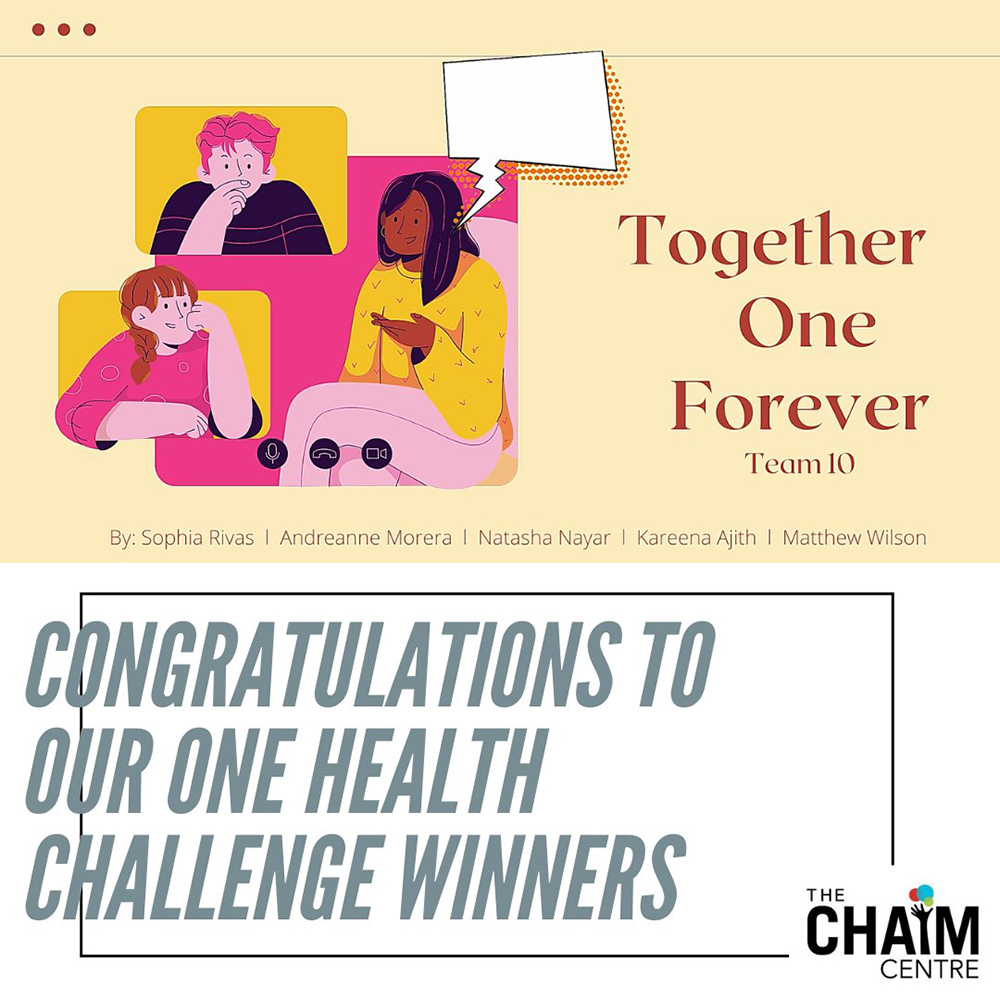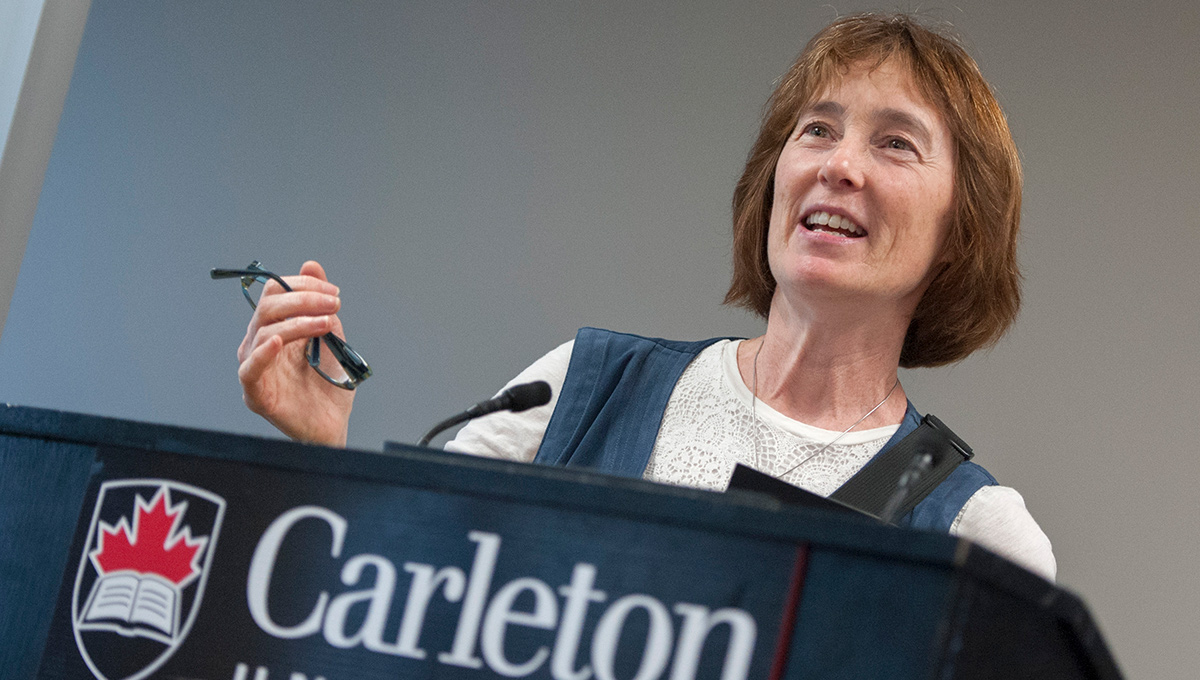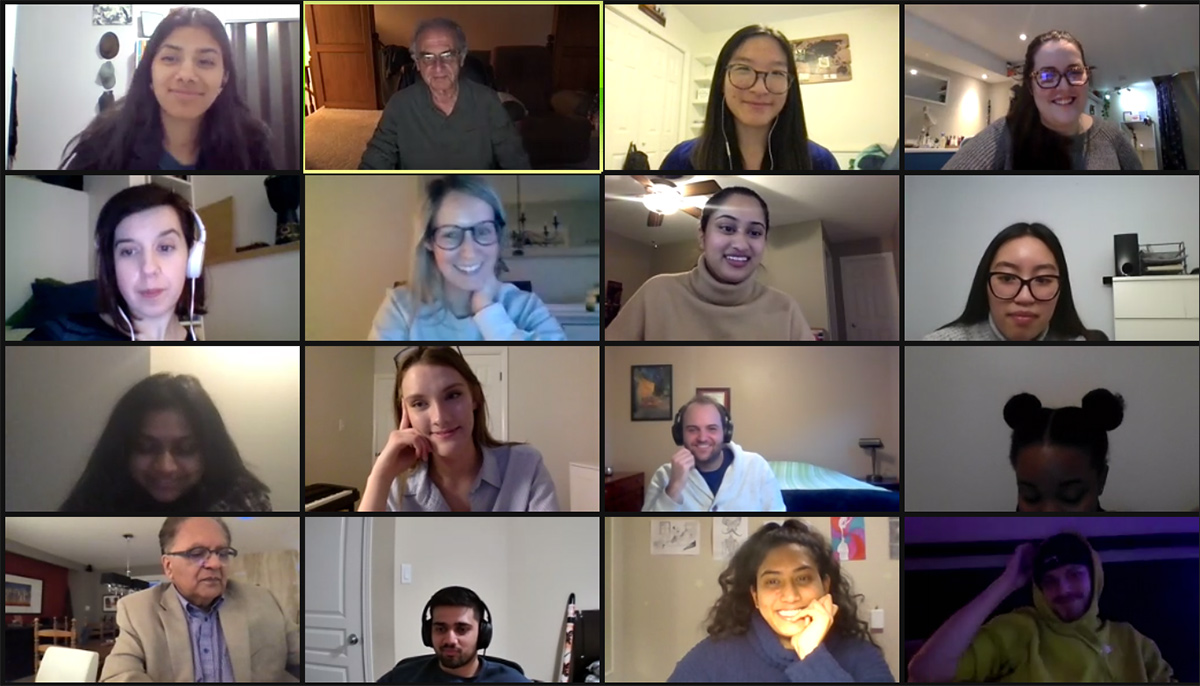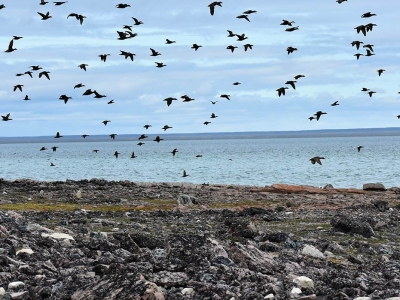By Joseph Mathieu
To address the vulnerability and social isolation of older Canadians, Carleton undergraduate students devised ways to build cross-generational connections between older and younger adults.
On March 18, 2021, they aimed to solve one of the world’s most complicated health problems through interdisciplinary collaboration during the fourth One HEALtH (Human Environment Animal Links to Health) Student Challenge.

Hosted by the Canadian Health Adaptations, Innovations & Mobilizations (CHAIM) Centre, the evening event saw 10 student teams pitch ideas they had developed over six weeks to address a longstanding problem that worsened during the pandemic.
“That problem is the disconnection between younger and older adults, resulting in stigma, isolation and sometimes diminished meaning in life,” said Neuroscience Prof. Kim Matheson, founding director of the CHAIM Centre.
Over the six weeks, the teams of three to five students were encouraged to engage with families, caregivers and volunteers, and they heard from a range of speakers and subject experts. Their solutions had to promote mental health and bring together young and older adults in a mutually beneficial, sustainable and pandemic-appropriate way. On March 18, they all screened short video pitches for a panel of judges.

Prof. Kim Matheson
The project “Together One Forever” was announced as the winner for a realistic and adaptable solution that went beyond the COVID-19 pandemic.
The winning team members were Health Sciences student Kareena Ajith, Mechanical Engineering student Natasha Nayar, Cognitive Science student Andréanne Morera, Psychology student Matthew Wilson, and Neuroscience and Mental Health student, Sophia Rivas. They had guidance and mentoring from graduate students Aisha Robinson (Electrical and Computer Engineering) and Sam Petrie (Health Sciences).

Storytelling Linked to Higher Rates of Happiness
The team referenced research that linked storytelling to higher rates of happiness and resilience to mental health deterioration. It suggested that sharing personal stories with others could improve a brain’s plasticity.
Through prompts and regular meetings over video or phone calls, an older and a younger person would create a collaborative workbook together. This can make an older person feel more connected to the world and allow a younger listener to gain wisdom, empathy and emotional intelligence.
“We all realized that there was commonality in how we connected to our grandparents,” said Nayar.
“The happiest that I’ve seen my grandparents was during moments that they would share past stories with me, and that was when I felt most connected to them.”

Carleton will be hosting its fourth annual Life Sciences Day on Tuesday, April 6, 2021
The winning team members each received $100 and their video pitch will be highlighted on the CHAIM Centre website. On April 6, 2021 they will present their project at Carleton University’s Life Sciences Day 4.1.
The judges also named a runner-up project created by team members Hailey McGuire (Architecture), Jaimie Reynolds (Psychology), Molly Zhang (Neuroscience and Biology), and Neha Khanna and Isabella Munevar-Pelton (both in Neuroscience and Mental Health). They proposed the “Bio Dem” community space for safe social interactions: a greenhouse-like dome with HVAC filters and other protective technology.
The CHAIM Centre One Health Challenge introduces the students’ work to industry-facing judges who often follow up for future collaborations.
“Your presentations were just varying degrees of outstanding,” said judge Helen Hirsh Spence, CEO and founder of Top Sixty Over Sixty.
“You need to get in touch with people on this panel to see how we can pursue it.”

Friday, March 26, 2021 in COVID-19, Health, Research, Student Experience
Share: Twitter, Facebook



